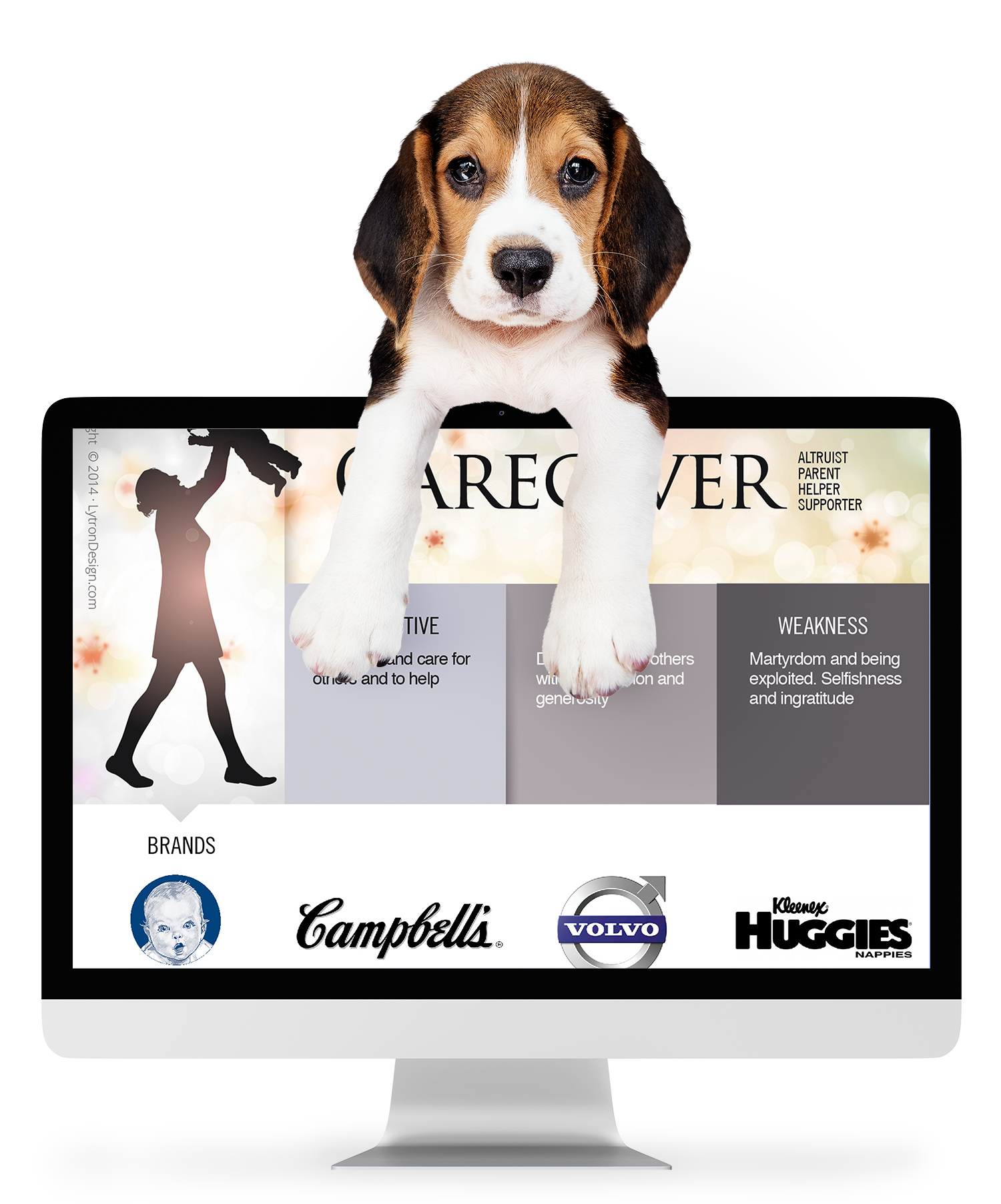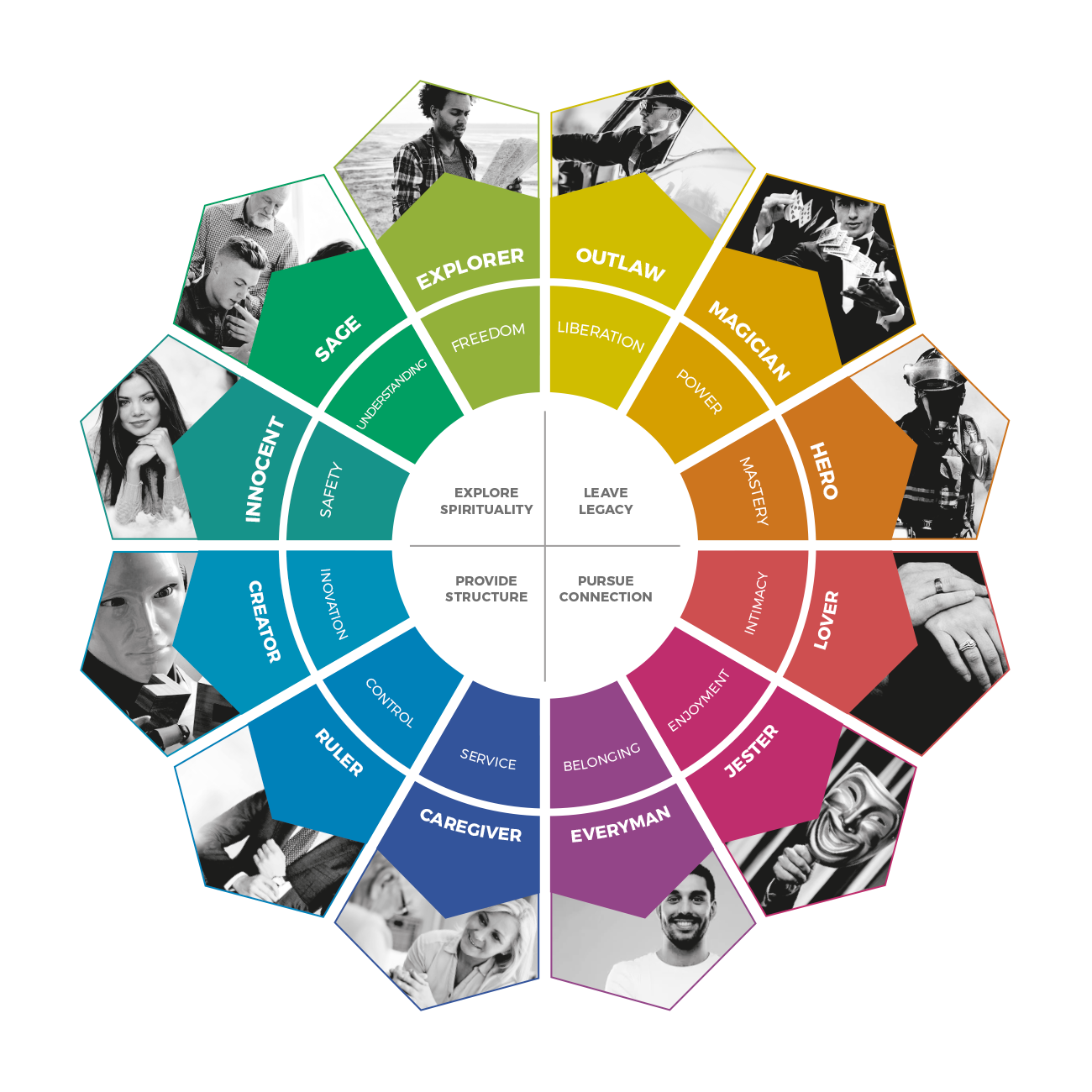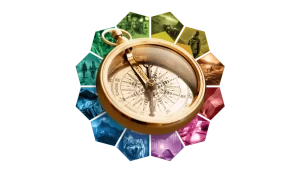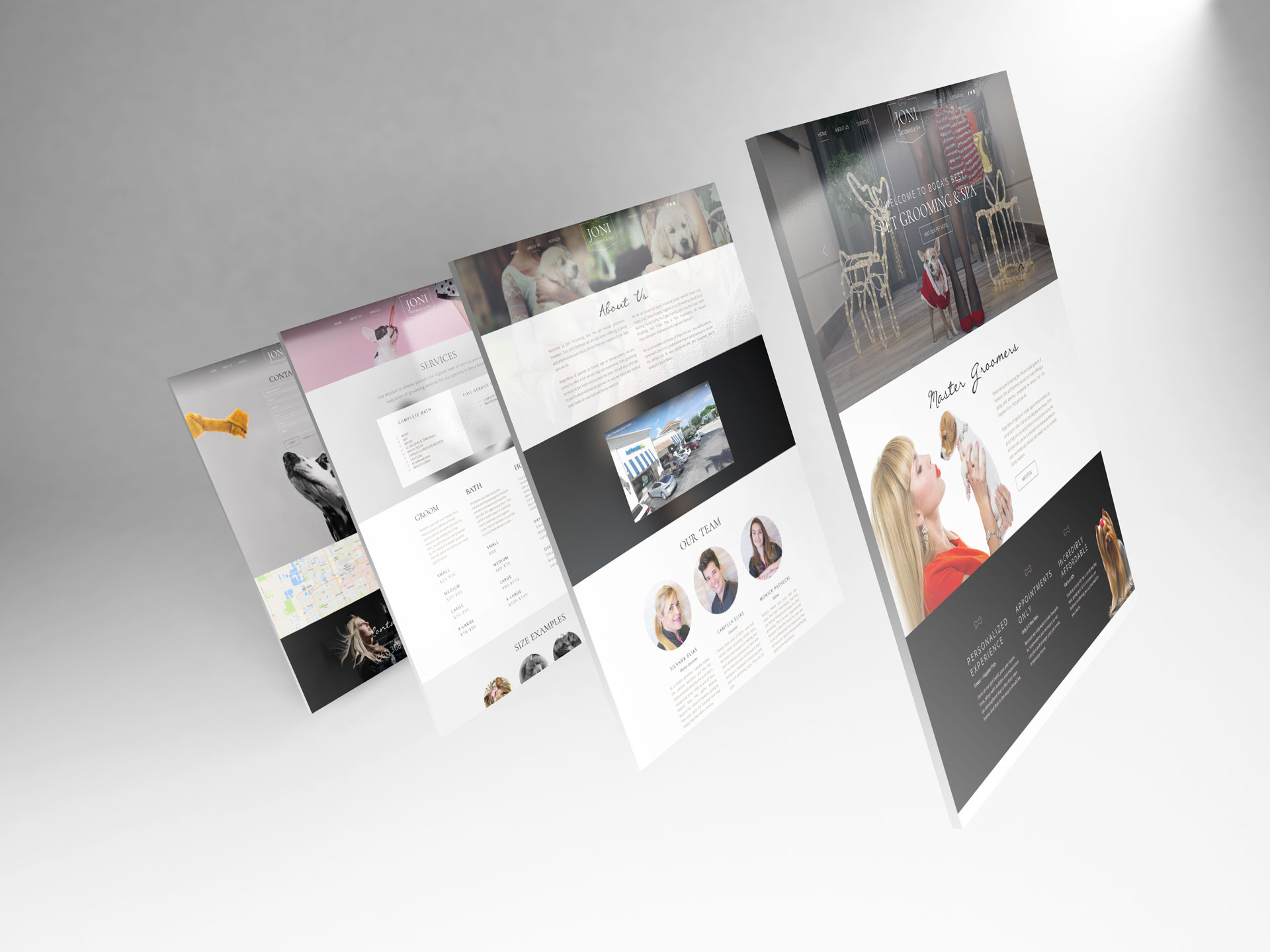
Brand Archetypes
Finding your voice
Especially as a small business, can be difficult. Identifying your brand archetype will save you time and money. Lytron will help you incorporate this concept on your brand message and marketing pieces.
It is a powerful thing when we are able to plug into the mind of others.

12 Archetypes
There are 12 brand archetypes. They are divided into four general human needs. Each archetype represents a deeper need that branches out from the main one.
First introduced in 1919, and primely used in the field of psychology, it became well established that collective unconcious is cross cultural.
Large brands have been applying the Archetype concept for decades to define their identity, amplify their reach and connect emotionally to thier target audience by reaching out to their subconscious and basic human needs. Usually the Archetype concept is not known by digital agencies and small businesses. As Lytron is both branding and digital marketing agency, results focused, we use Archetypes on our brand creation process and sites development to increase conversion rate and ROI
Reach Paradise
1. Innocent (wants to be Safe)
Brands who use this archetype might want to make their costumers feel safe and beautiful on the inside. Ex: Nintendo Wii, Coca-Cola, Dove
2. Sage (wants to understand)
Brands that identify with this archetype tend to have a humanist side and want to help those who follow them. Ex: Google, BBC, Oprah
3. Explorer (wants to be free)
A brand that has chosen the Explorer as their archetype may offer their clients a chance to escape. Ex: Corona, Red Bull, REI
Mark the the world
4. Outlaw (wants to liberate)
These brands tend to cater to misfits and/or people who like living on the edge. Ex: Virgin, Harley-Davidson, Diesel
5. Magician (wants power)
They promise their customers to make their dreams come true by using their impressive skills. It is no wonder that many technology brands use this archetype. Ex: Apple, Absolute Vodka, Axe
6. Hero (wants to master)
Brands that shape themselves after the Hero sell themselves to their customers as the one who is going to rescue them from their woes. Ex: Snickers, Nike, Ariel, Printsome
Connect with others
7. Lover (wants intimacy)
A company that identifies itself with this archetype will most likely use suggestive imagery to evoke sensations. Ex: Häaguen-Dazs, Victoria Secret, Chanel
8. Jester (wants enjoyment)
A marketing campaign designed for a Jester brand would probably be very funny or at least entertaining. Everyone loves to laugh, that’s why Jesters are some of the most beloved brands or at least have the most memorable ads. Ex: Pepsi, M&M’s, Old Spice, Budweiser
9. Everyman (wants to belong)
Brands who identify with the Everyman archetype relate to people on a “real” level. The Everyman marketing campaign usually evolves around everyday life activities and routines. Their message: It is perfectly fine to be normal. Ex: IKEA, Kit Kat, Visa
Provide structure
10. Creator (wants to innovate)
A Creator brand will empower its customers to use their creativity by selling them a world of possibilities. Ex: Lego, Adobe, Crayola
11. Ruler (wants to control)
A brand that wants to “Rule them all” will have a narrative that demonstrates why they’re the leader of the industry. These type of brands will suggest to their customers that they can be rulers, too. Ex: Microsoft, British Airways, Mercedes-Benz
12. Caregiver (wants to service others)
If the Ruler archetype is your boss then the Caregiver archetype is your parent. They empathise, want to help and protect their clients. Their message tends to be very positive. A Caregiver brand will exude an aura of selflessness. Ex: UNICEF, Johnson & Johnson, Heinz
Emotional Intelligence
People do not make decisions based solely on logical / rational factors. Regardless of culture, we have what we call the sixth sense, the gut feeling or intuition.
Lytron’s role is to use emotional intelligence to understand its consumer and position its brand in order to promote identification between the two. You create a good product / service and we connect you to your customer’s need.

Brand Personality
Does Your Brand Have Multiple Personality Disorder? We will help you to activate a core emotional response (make them feel secure, make them feel part of the group, etc) in order to build trust and loyalty.
We study and learn what motivates your consumers. We rely on data insights, competition study and analytics rather than blindly guessing. Once we’ve determined what motivates them, we present a clear point of view that will attract those who are a strong fit for your brand.
We suggest being genuine at all times to make sure your messaging and interactions consistently align with your brand’s value proposition.



